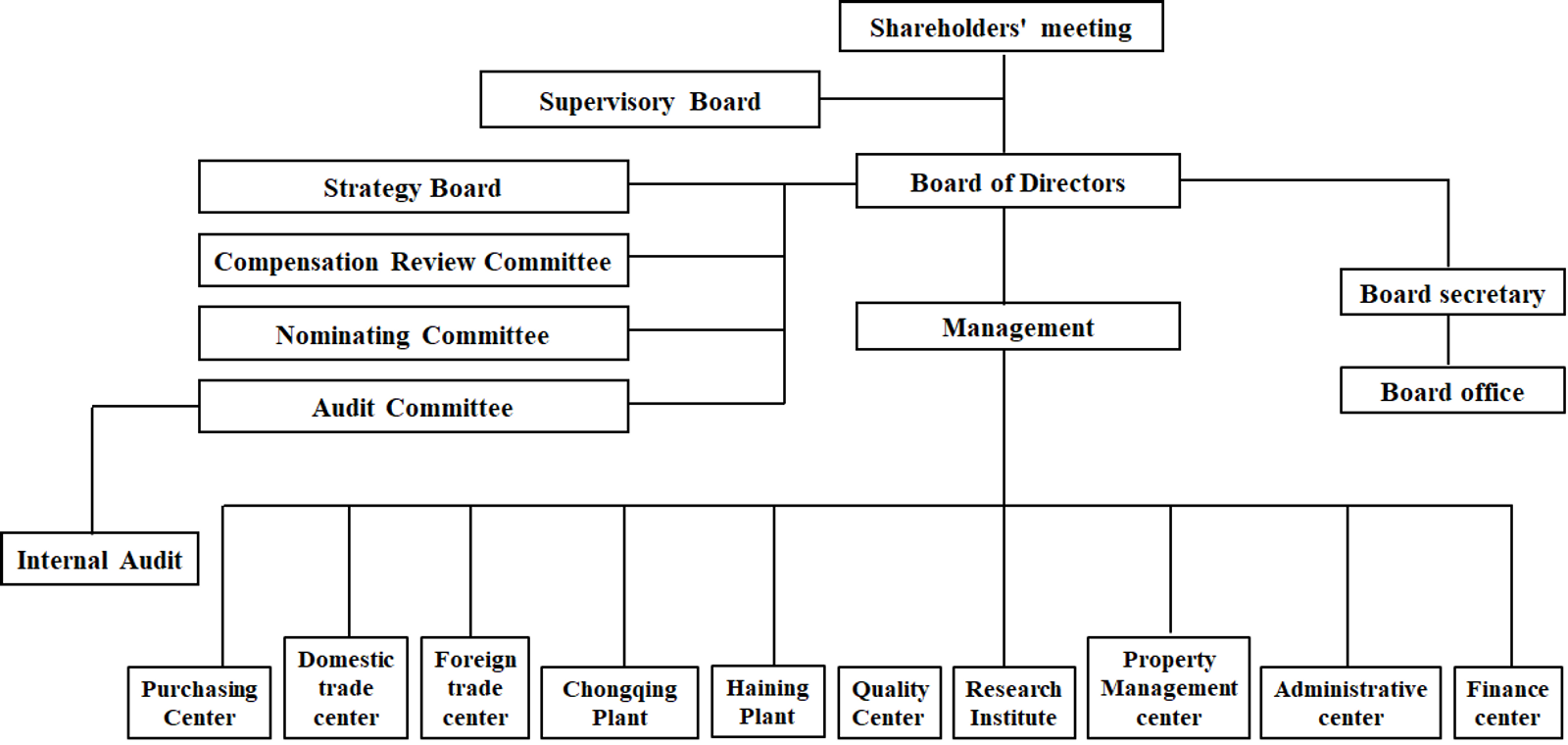
Organizational Structure
The company's basic organizational structure consists of a multi-level governance structure composed of the shareholders' meeting, the board of directors, the supervisory board, and the executive management in accordance with national laws and regulations and the company's articles of association. The board of directors has specialized committees such as the strategic committee, audit committee, remuneration and assessment committee, and nomination committee, as well as the board office. The company has functional departments including the procurement center, domestic trade center, foreign trade center, production center, quality center, research institute, logistics center, administration center, finance center, and internal audit department.
The company's basic organizational structure consists of a multi-level governance structure composed of the shareholders' meeting, the board of directors, the supervisory board, and the executive management in accordance with national laws and regulations and the company's articles of association. The board of directors has specialized committees such as the strategic committee, audit committee, remuneration and assessment committee, and nomination committee, as well as the board office. The company has functional departments including the procurement center, domestic trade center, foreign trade center, production center, quality center, research institute, logistics center, administration center, finance center, and internal audit department.

Stakeholders
Information Disclosure and Transparency
Independence of the Company from Controlling Shareholders
Innovation in Management Mechanism
Strictly Ensuring Production Safety
Management of Insider Information
Investor Relations Management

